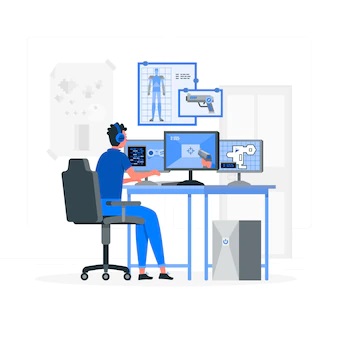Introduction:
Game development is a complex and multi-faceted process that involves many stages, from concept to launch. A successful game requires a team of talented individuals, each contributing their own skills and expertise, and working together to bring the game to life. In this article, we will explore the various stages of the game development process, from concept to launch.
Conceptualization
Idea Generation: The first stage of game development is generating ideas for the game. This may involve brainstorming sessions, market research, and a deep understanding of the target audience and their needs.
Prototyping: Once the game concept has been developed, the next step is to create a prototype. A prototype is a basic representation of the game that allows the team to test and refine the game’s mechanics and design.
Pre-Production
Game Design: During pre-production, the game design is refined and a comprehensive game design document is created. The game design document outlines the game mechanics, characters, environments, and story, and serves as the blueprint for the rest of the development process.
Asset Creation: In this stage, the game assets, such as characters, environments, and levels, are created. This stage may involve the use of modeling and animation software, such as 3D Studio Max and Maya.
Production
Programming: The programming stage involves writing code to bring the game to life. This stage may involve the use of programming languages, such as C++, C#, and Java, and game engines, such as Unity, Unreal Engine, and CryEngine.
Testing: Testing is a crucial stage of the game development process. In this stage, the game is thoroughly tested for bugs and technical issues, and any necessary changes are made.
Post-Production
Polishing: In this stage, the final touches are added to the game, such as sound effects and music, to enhance the player’s experience.
Marketing and Promotion: Before launch, the game needs to be marketed and promoted to build excitement and anticipation. This may involve creating trailers, hosting events, and participating in industry conferences.
Launch
Release: The final stage of the game development process is the launch of the game. This involves distributing the game through various channels, such as app stores, gaming platforms, and physical retail stores.
Maintenance and Updates: After launch, the game may require ongoing maintenance and updates to fix bugs and add new features.
Conclusion
The game development process is a complex and multi-faceted process that involves many stages, from concept to launch. A successful game requires a team of talented individuals, each contributing their own skills and expertise, and working together to bring the game to life. The key stages of the game development process include conceptualization, pre-production, production, post-production, and launch, and each stage is essential for the success of the game.

